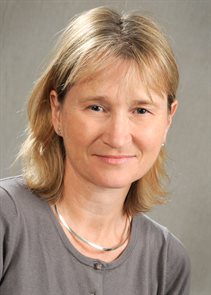Doctor warns under-fives suffering lack of sleep through screen time and poor activity levels
 A leading children’s doctor has warned even under-fives can suffer from lack of sleep as a result of extended screen time at home and poor physical activity levels.
A leading children’s doctor has warned even under-fives can suffer from lack of sleep as a result of extended screen time at home and poor physical activity levels.
Dr Catherine Hill, a consultant in paediatric sleep medicine at Southampton Children's Hospital, urged parents to encourage outdoor play and quiet, screen-free bedtimes to help tackle the issue.
She spoke out following the first comprehensive review of more than 60,000 children under the age of five which was published in the journal Sleep Medicine Reviews and ahead of Baby Sleep Day on Sunday (1 March).
Results of 31 studies assessed by Dr Hill and colleagues at the University of Strathclyde showed screen time was directly related to poorer sleep outcomes in infants, toddlers and pre-schoolers while outdoor play was associated with better sleep.
“While it is now well-established reduced physical activity and increased screen time adversely impacts older children's sleep, little was known about these associations in children under the age of five,” said Dr Hill.
“This is the first paper to combine evidence about screen time in very young children and our data showed an association between higher levels of total daily screen exposure – principally TV – and, in particular, evening screen time and poor sleep in infants, toddlers and pre-schoolers.
“Meanwhile, more outdoor play and physical activity in toddlers and pre-schoolers – i.e. mobile children – was associated with better sleep.”
Dr Hill, who is also an associate professor of child health at the University of Southampton, said the findings “increase pressure” on society and government to formally incorporate sleep health into the public health agenda.
“Adequate sleep plays a critical role in children’s health and development, with short sleep duration in the early years linked to obesity in later life and an effect on early brain development,” she said.
“We have now shown comprehensively for the first time that children’s sleep is associated with too much daytime and evening screen time and restricted play outdoors.
“The findings should not only prompt parents, clinicians and educators to take action to encourage sleep promoting behaviours such as limiting screen time, they should also increase pressure on authorities to develop formal public health initiatives and policies.”
She added: “In summary, healthy outdoor play and quiet screen-free bedtime can provide the best possible boost to health and development on the planet and it comes at no cost, so there is no excuse not to act now.”
Dr Hill is a member of the Pediatric Sleep Council, an international team of children’s sleep experts behind Baby Sleep Day and, along with colleagues, will release a range of sleep tips on social media throughout the day on Sunday to address common family concerns. For more information visit www.babysleep.com/babysleepday.